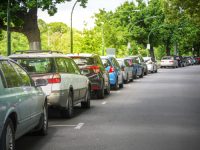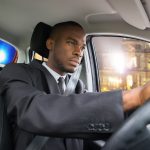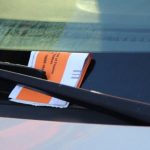NSW Police Criticised for Targeting ‘Absurd’ Offence

Residents in the Illawarra region, north of Wollongong, are angry about being targeted for an offence which has been described as ‘obscure’, ‘trivial’ and even ‘absurd’.
The offence
Regulation 213 of the Road Rules 2014 (NSW) is titled ‘making a motor vehicle secure’ and imposes a range of rules on drivers who are away from their vehicles.
Regulation 213(5) makes it an offence punishable by a fine of up to $2,200 for a driver to leave a door of their motor vehicle unlocked, or a window open by more than 2 centimetres, if they are more than 3 metres away from the vehicle and nobody else is inside.
The offence can be dealt with by way of a fine of $112.
Residents angry
Police have admitted targeting the offence in the region, much to the displeasure of local residents how have taken Facebook to express their views.
“This is the nanny/police state we live in now … how dare NSW police randomly check people’s cars,” posted one resident.
“Funny how it’s the law abiding that are fined, rather than those crooks that do the breaking in…” posted another.
“It doesn’t belong to them or the state … don’t touch my things. If I forget to lock my car I’ll be responsible if I have something stolen.”
Residents are particularly concerned that police have been opening their car doors and illegally checking what is inside.
Possible illegal searches
NSW Council for Civil Liberties president Stephen Blanks has labelled the law is completely absurd.
He has expressed particular concerns that the law has been misused to access and search vehicles without a warrant or a ‘reasonable suspicion’ that a prohibited item is inside.
“Police should not be doing that kind of thing… [accessing and searching a car] without a warrant, and the mere fact a car is unlocked is not a cause for suspicion there’s something illegal in it”, Mr Blanks stated.
“This kind of activity is just the wrong thing to do”.
Mr Blanks is right. Section 36 of the Law Enforcement (Powers and Responsibilities) Act 2002 provides police with power to search a vehicle without a warrant if he or she suspects on reasonable grounds that any of the following circumstances exists:
(a) the vehicle contains, or a person in the vehicle has in his or her possession or under his or her control, anything stolen or otherwise unlawfully obtained,
(b) the vehicle is being, or was, or may have been, used in or in connection with the commission of a relevant offence,
(c) the vehicle contains anything used or intended to be used in or in connection with the commission of a relevant offence,
(d) the vehicle is in a public place or school and contains a dangerous article that is being, or was, or may have been, used in or in connection with the commission of a relevant offence,
(e) the vehicle contains, or a person in the vehicle has in his or her possession or under his or her control, a prohibited plant or prohibited drug in contravention of the Drug Misuse and Trafficking Act 1985 ,
(f) circumstances exist on or in the vicinity of a public place or school that are likely to give rise to a serious risk to public safety and that the exercise of the powers may lessen the risk.
Simply being unlocked would not ground the required ‘reasonable suspicion’.
Police defend actions
Police have defended their actions, saying they are taking a proactive approach to crime prevention.
Detective Inspector Brad Ainsworth points out that unlocked cars provide an opportunity for crimes to occur, adding:
“There have been lots of steal from motor vehicle offences in the northern suburbs and by going out and having a look, we’re more than justified in doing that”.
He says that police found around 30 vehicles to be unlocked in just a couple of nights, and that owners have been issued warnings rather than fined.
But this is little comfort to residents, who feel their privacy has been invaded and that police should be out catching real criminals.
Going to court for a traffic offence?
If you are going to court for a traffic offence, call or email Sydney Criminal Lawyers anytime to arrange a free first consultation with an experienced, specialist traffic lawyer who will accurately advise you of your options, the best way forward, and fight for the optimal outcome in your specific situation.







